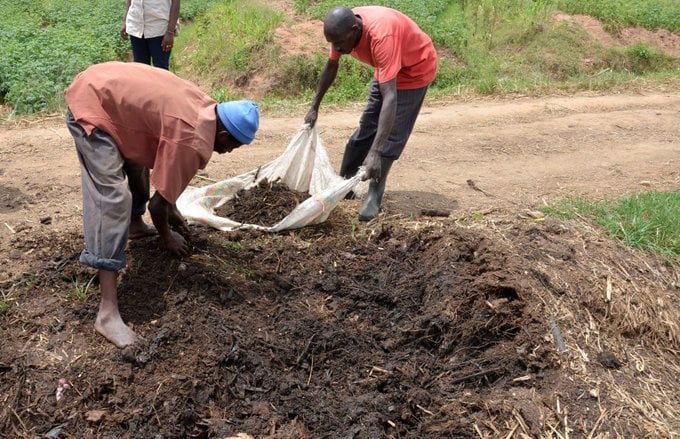Poorly decomposed organic fertilizer: A farmer’s friend that can backfire
As the world grapples with climate change, declining agricultural productivity, and land degradation, the use of organic fertilizer has emerged as a key strategy for promoting sustainable farming. However, using poorly decomposed manure is like taking unmeasured medication(..) instead of curing the illness, it may cause new health problems.
A 2022 study by the Food and Agriculture Organization (FAO) revealed that over 33 million hectares worldwide have been degraded due to the use of improperly prepared fertilizers, including raw organic waste.
The effects extend beyond crops; they impact soil biodiversity, water quality, and even the atmosphere.
When organic waste such as fresh livestock manure or green plant residues are applied to fields before fully decomposing, they begin to break down anaerobically without oxygen. This process releases gases such as ammonia (NH₃), methane (CH₄), and nitrous oxide (N₂O).
Methane and nitrous oxide are potent greenhouse gases, trapping heat 300 to 310 times more effectively than carbon dioxide (CO₂), according to the IPCC (2021). These emissions contribute significantly to global warming.
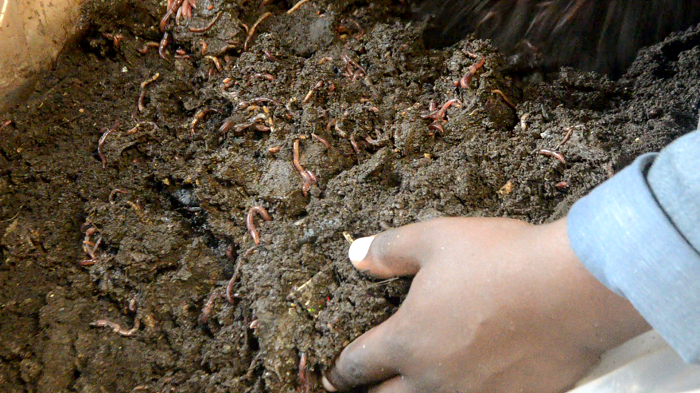
Ammonia, as found in a 2023 study by McGill University, can burn plant roots, cause chlorosis (leaf yellowing), and lead to stunted plant growth.
Several farmers interviewed by Greenafrica.rw admitted to relying on fresh plant residues as fertilizer, often immediately after harvest, without allowing them to decompose.
Nepomoscene Karemera explained: “After harvesting crops like maize, sorghum, or beans, we often dig the residues back into the soil without knowing they might harm soil life and the environment. We thought we were making compost.”
Applying such undecomposed material to the soil leads to a process called nitrogen immobilization, where microbes responsible for decomposition consume nitrogen for their own needs, depriving crops of essential nutrients.
FAO’s Soil Bulletin No. 91 warns that plant growth can drop by 25–40% in fields treated with poorly decomposed organic fertilizer.
This process also stresses vital decomposers like earthworms, fungi, and protozoa, which are key to maintaining healthy soils. When overwhelmed, these organisms die off, leading to barren or compacted soils.
Farmers may misattribute the poor yields to bad seeds or weak manure and resort to synthetic fertilizers and pesticides.
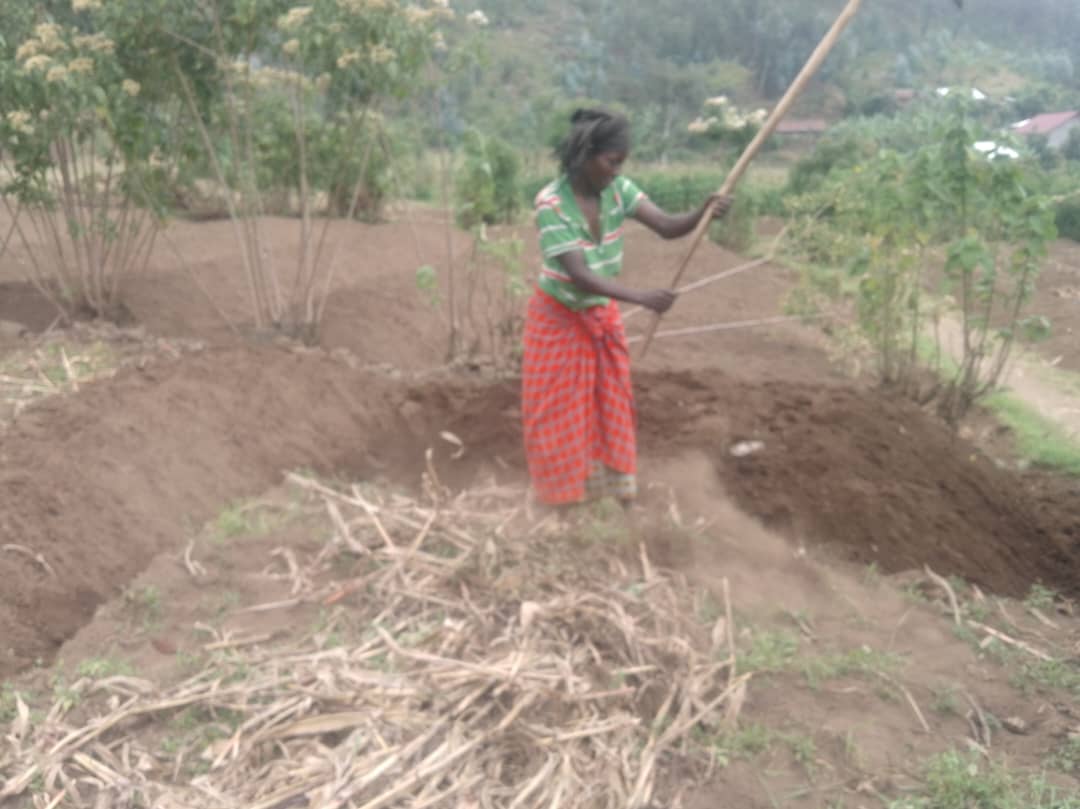
Nyiransabimana said: “Most of us don’t realize what the research shows. We think the problem lies in weak seeds or manure that has lost its strength, so we run to agrochemical shops to buy pesticides though they don’t always solve the issue.”
Isaac Nzabarinda, a seed multiplier and potato farmer in Kinigi Sector, Musanze District, emphasized the benefits of using well-prepared compost.
“When we use thoroughly decomposed manure, it helps soil organisms distribute nutrients effectively. Some farmers mistake fresh residues for compost and think they’re doing climate-smart agriculture.”
He added: “This leads to soil infertility or compaction, which negatively affects the next planting season. The farmer may need to rest the land, resulting in financial losses.”
Poorly composted material can also block soil pores, preventing water and air infiltration, thus leading to soil compaction.
A 2022 UNEP study revealed that improperly processed organic waste reduced water infiltration by up to 60% in fields cultivated for five years in Tanzania’s Kilimanjaro region.
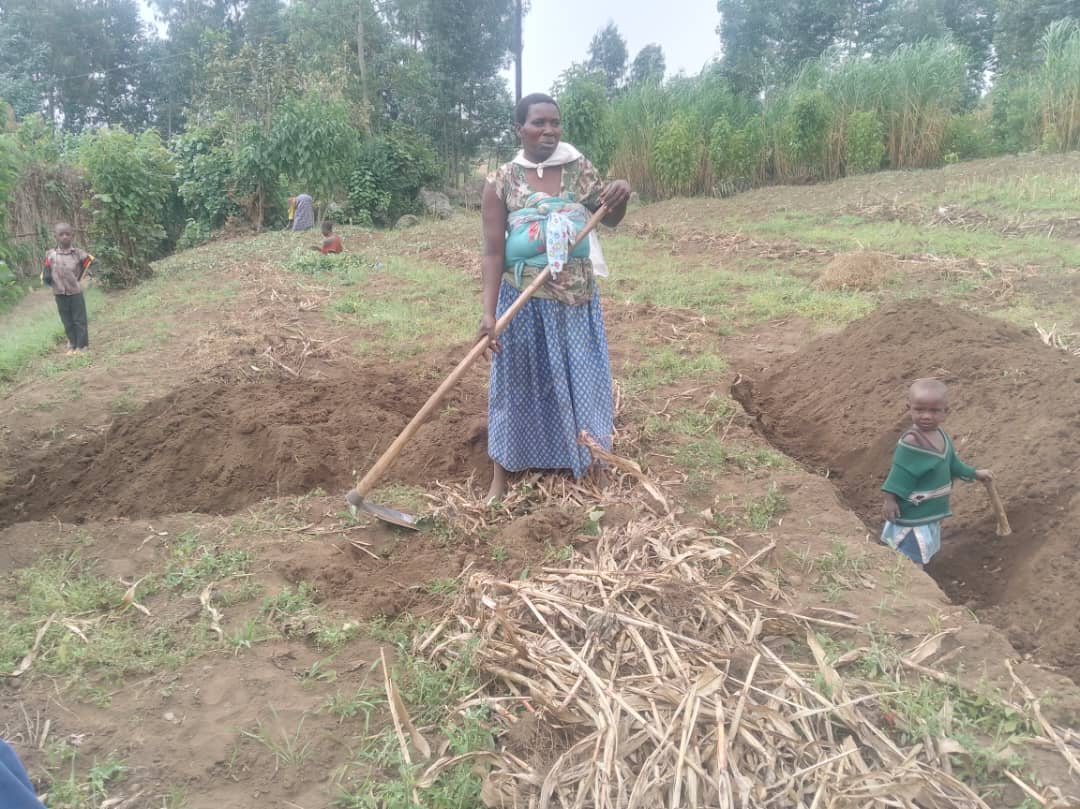
Moreover, fresh livestock waste may carry harmful bacteria and parasites that contaminate crops, soil, and water.
Research from the Cornell Waste Management Institute found that improperly handled manure can contaminate vegetables with pathogens like E. coli, Salmonella, and other harmful organisms.
Lisa Chantal Dusabe, director of the Rwanda Organic Agriculture Movement, told Greenafrica.rw that while organic farming is a solution to climate change, many farmers misuse organic fertilizers.
“Organic farming is not the same as traditional farming. It’s science and technology-based. Throwing green plant residues into fields without composting doesn’t qualify as organic farming. Poorly decomposed fertilizer can cause more harm than good. We must raise awareness,” she emphasized.
Ferdinand Wafula, Coordinator at Bio Gardening Innovation (BIOGI) in Kenya, echoed these concerns, noting that fresh manure contains excessive nitrogen, which is not immediately available to plants.
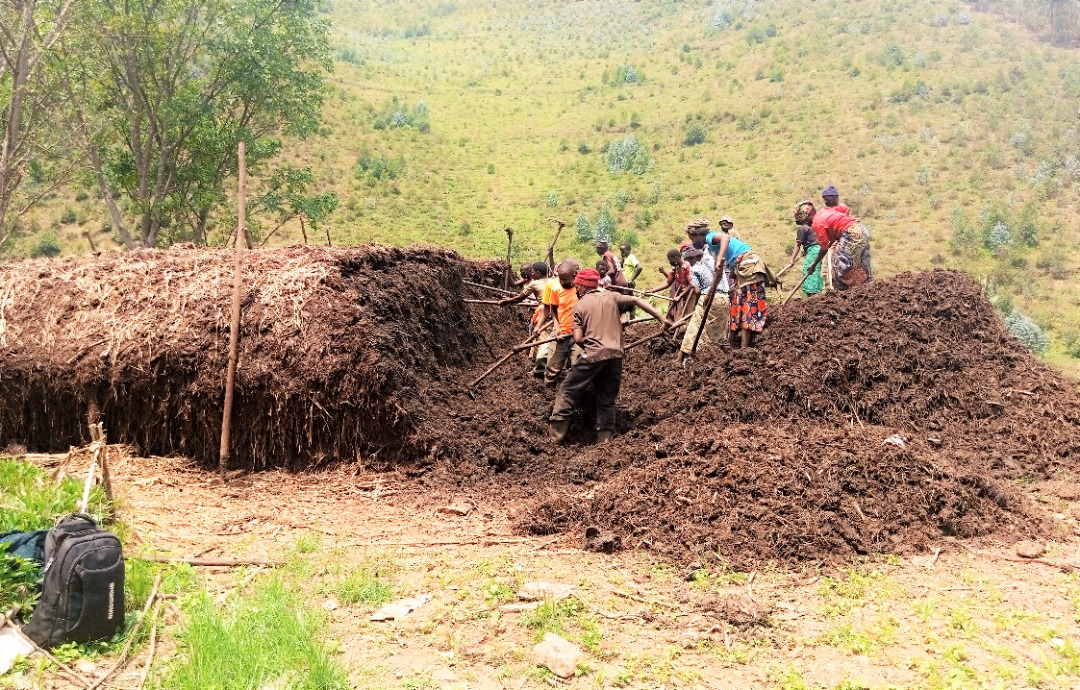
“Before nutrients can be absorbed, organic matter must be broken down by microorganisms. Fresh manure can also harbor pathogens. Composting, especially thermophilic composting which uses high temperatures, helps neutralize these risks and enrich the soil with humic acids.”
He advised farmers to compost manure for at least two to three months before use. The carbon-to-nitrogen ratio is also important. Excess nitrogen in fresh manure can be balanced with carbon-rich materials like sawdust to promote proper decomposition.
Research shows that organic fertilizer must meet key preparation standards to be effective and safe: it should be properly heated to 55–70°C for 6–8 weeks, non-biodegradable materials such as plastics and glass must be removed, and it must be regularly turned to allow oxygen penetration.
FAO and IUCN are urging all countries to establish national organic fertilizer standards, to ensure a consistent approach to sustainable agriculture.
Organic fertilizer is like the lifeblood of agriculture. When well-prepared, it brings vitality, productivity, and environmental safety. But when poorly handled, it becomes a source of disease, harmful emissions, and economic loss for both farmers and the planet.
Using organic fertilizer is not just about spreading it in the field. It’s about caring for the soil, just as lovingly and attentively as you would raise your own children.
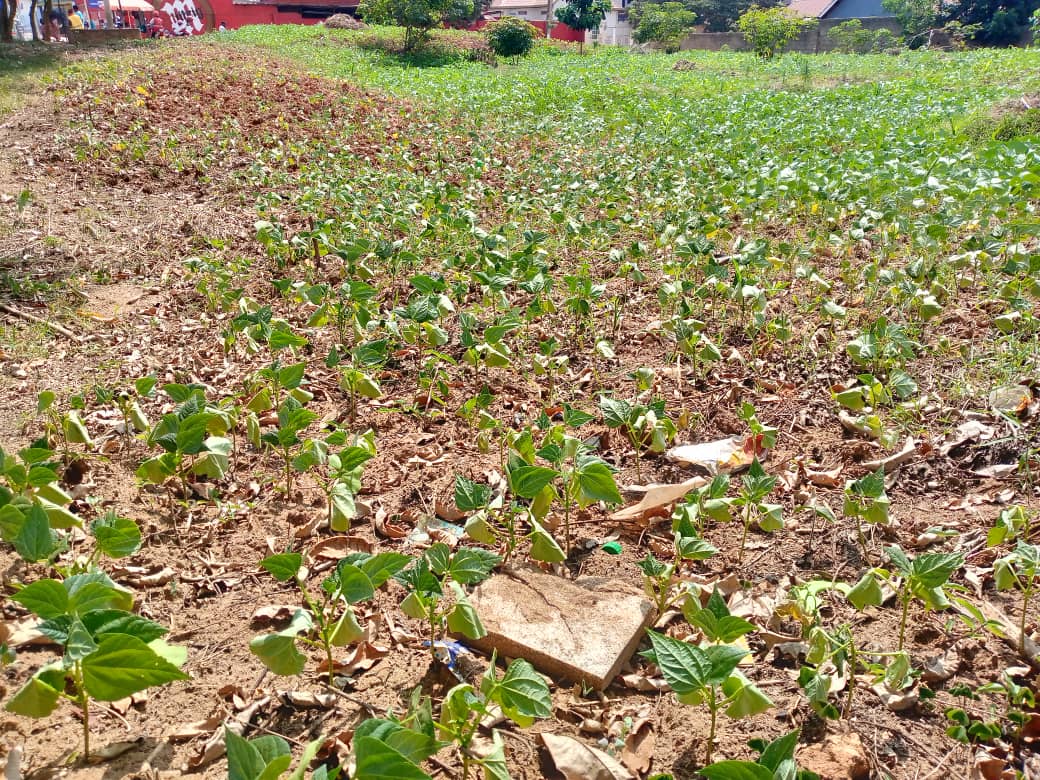
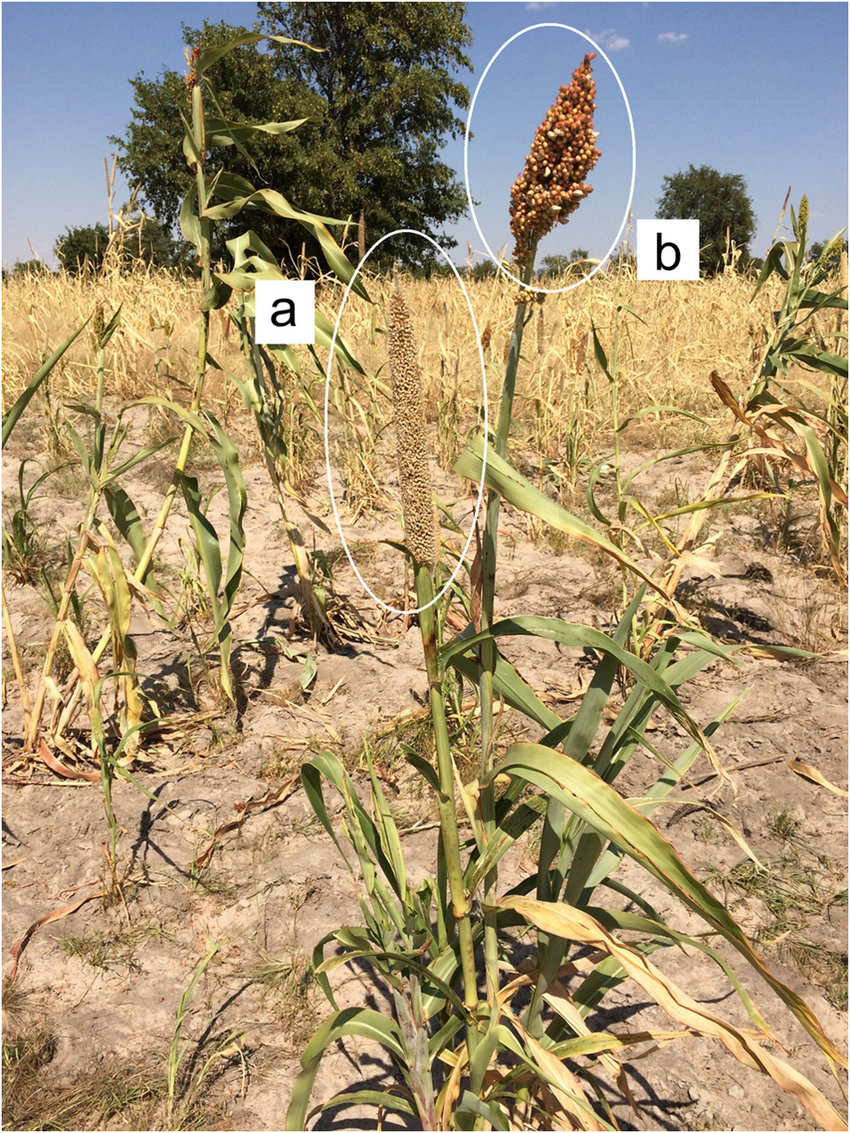
Would you like to partner with us to promote your initiatives?
Call us at: +250784581663
Email: Greenafrica393@gmail.com and juvekwizera@gmail.com

